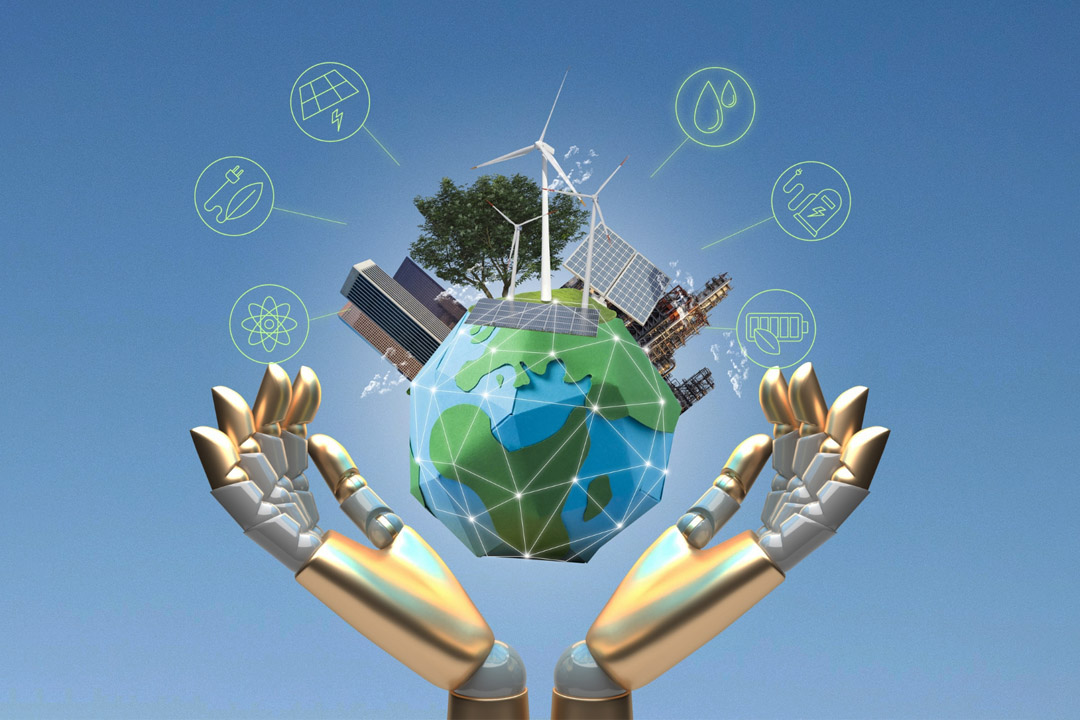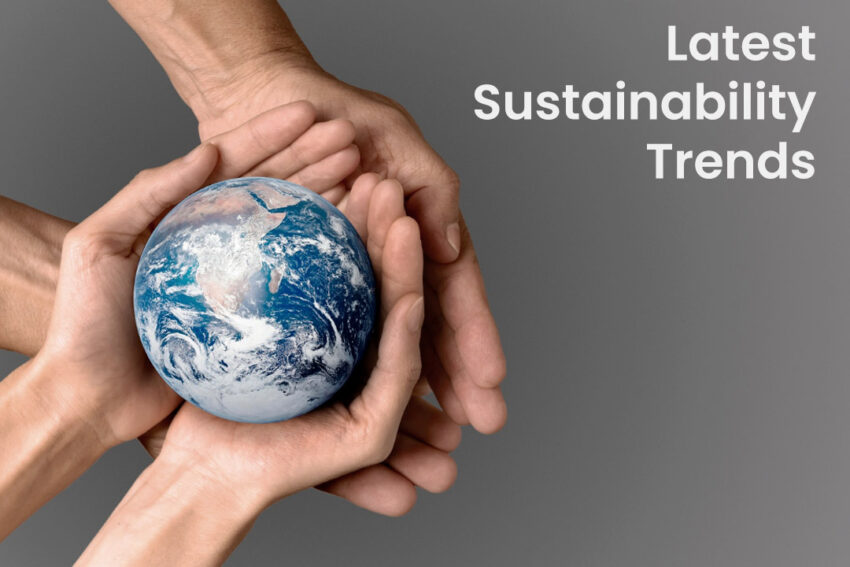In a world where environmental consciousness has moved from boardroom buzzword to bottom-line imperative, businesses are racing to reinvent themselves for a sustainable future. Gone are the days when “going green” meant simply switching to LED bulbs or installing a few solar panels. Today’s corporate sustainability landscape is undergoing a seismic shift, driven by advancing technology, evolving consumer demands, and an increasingly urgent climate crisis.
As markets pivot and industries transform, companies are discovering that environmental stewardship isn’t just good PR—it’s a powerful engine for innovation, competitive advantage, and long-term profitability. From blockchain-enabled supply chain transparency to regenerative business models that actually improve the environment, the latest sustainability trends are reshaping how companies operate, compete, and create value.
This transformation isn’t just affecting traditional environmental leaders like Patagonia or Tesla. From small startups to Fortune 500 giants, businesses across every sector are reimagining their relationship with the planet. But what’s driving this change, and more importantly, where is it heading?
Let’s explore the groundbreaking trends that are defining the future of sustainable business in 2024 and beyond.
Here are some interesting statistics on the latest sustainability trends:
1. Renewable Energy Surge: Renewable energy has seen unprecedented growth, reflecting a global commitment to reducing carbon emissions and reliance on fossil fuels. The global renewable energy market is projected to soar to $1.5 trillion by 2026, driven by advancements in wind, solar, and other clean energy technologies.
By 2022, renewables accounted for 38% of global electricity generation—a significant jump from 26% in 2010. This trend highlights not only the environmental benefits but also the economic potential that renewable energy brings to the table.
2. Electric Vehicles (EVs) on the Rise: The push toward sustainable transportation is evident, with electric vehicles quickly gaining traction worldwide. By 2030, EVs are anticipated to make up 30% of all new car sales, up from 10% in 2022.
This growth is fueled by technological improvements, lower costs, and policy incentives, positioning EVs as a cornerstone in the shift toward carbon-neutral transportation.
3. Sustainable Agriculture’s Expansion: As consumers demand healthier and more sustainable food options, sustainable agriculture practices, including organic farming, are becoming mainstream. The global organic food market is expected to reach $250 billion by 2027.
By 2022, organic farmland comprised 1.7% of global agricultural land. This expansion in organic practices not only supports biodiversity and soil health but also aligns with growing consumer expectations for eco-friendly food production.
4. Circular Economy Adoption: Businesses worldwide are embracing circular economy principles to minimize waste, maximize resource efficiency, and create closed-loop systems. The global circular economy market is projected to hit $3.9 trillion by 2030, reflecting widespread adoption across industries.
Although the global recycling rate for municipal solid waste was only 19% in 2022, initiatives are accelerating to increase recycling rates and reduce landfill waste, emphasizing a shift from linear “take-make-dispose” models to more sustainable, regenerative approaches.
Some additional statistics on specific sustainability trends:
- Food waste: According to the United Nations Food and Agriculture Organization, one-third of all food produced for human consumption is wasted every year.
- Water scarcity: According to the World Resources Institute, 2.3 billion people live in water-stressed countries.
- Climate change: According to the Intergovernmental Panel on Climate Change (IPCC), global surface temperature has increased by about 1 degree Celsius since the pre-industrial era.
These statistics show that sustainability is becoming increasingly important to businesses, consumers, and governments alike.
As the world faces challenges such as climate change, water scarcity, and food waste, there is a growing recognition that we need to shift to more sustainable ways of living and doing business.
Here’s a video to learn more about sustainability for a better world.
Business Sustainability Trends That Are Shaping the Future

Photo credit: Freepik
1. Strategic ESG Integration: Beyond Compliance
The integration of Environmental, Social, and Governance (ESG) factors has evolved from a mere checkbox exercise to a strategic imperative.
Businesses are now embedding ESG into their core strategies, recognizing that these elements can significantly impact their financial performance, brand reputation, and longevity.
Companies like Microsoft and Unilever are leading this transformation by embedding ESG metrics into executive compensation, investment decisions, and operational strategies.
This shift represents a fundamental change in corporate thinking – where sustainability isn’t just about risk management, but about creating long-term value.
Organizations are now using sophisticated ESG data analytics to inform everything from supply chain decisions to product development, demonstrating that profitability and sustainability can go hand in hand.
2. Circular Economy: Redesigning Business for Zero Waste
The circular economy concept is gaining ground as a viable and lucrative alternative to the traditional linear economic model of “take-make-dispose.”
The circular economy model emphasizes keeping resources in use for as long as possible, extracting maximum value from them, and then recovering and regenerating products at the end of their service life.
Companies like Interface, the global flooring manufacturer, have demonstrated that circular principles can drive innovation and profitability. Their ReEntry® program has recycled over 309 million pounds of carpet since 1994, creating a closed-loop manufacturing system that significantly reduces waste and raw material costs.
Other pioneers like Philips have transformed their business model from selling products to providing services, ensuring products are maintained, repaired, and eventually recycled within their system.
3. Tech-Driven Sustainability: Innovation at Scale
One of the trends that will shape the future of corporate sustainability is the utilization of technology to drive sustainable practices.
Technology, including Artificial Intelligence (AI) and Blockchain, as well as the Internet of Things (IoT), is presenting businesses with options that have never been seen before to lessen their negative impact on the environment, increase the effectiveness of their operations, and develop creative sustainable solutions.
AI-powered systems are optimizing energy use in real-time, with companies like Google using DeepMind AI to reduce data center cooling energy use by 40%.
Blockchain technology is enabling unprecedented supply chain transparency – Walmart now tracks over 25 products from source to store using blockchain, ensuring sustainable and ethical sourcing.
IoT sensors are helping companies like Siemens reduce their environmental impact by monitoring and optimizing resource usage across their global operations in real time.
4. Carbon Neutrality: The Race to Zero
As climate change risks escalate, achieving carbon neutrality has become a crucial goal for corporations. Companies are not only focusing on reducing their carbon footprints but are also investing in carbon offset programs and renewable energy projects.
Increasingly, corporations are setting Science-Based Targets (SBTs) that align with the Paris Agreement’s goal to limit global warming to well below 2 degrees Celsius above pre-industrial levels.
Amazon’s Climate Pledge Fund, committing $2 billion to support the development of sustainable technologies, exemplifies this trend.
Organizations are also exploring creative solutions like internal carbon pricing – Microsoft’s $15 per metric ton carbon fee has helped fund renewable energy projects and carbon reduction initiatives across their operations.
5. Stakeholder Capitalism: Redefining Corporate Purpose
The concept of stakeholder capitalism, which emphasizes creating value for all stakeholders (shareholders, employees, consumers, and suppliers as well as local communities and communities at large), is redefining the concept of sustainable corporate practices.
Companies are realizing that to achieve sustainable success, they must not just cater to the needs of their shareholders, but also those of their larger stakeholder ecosystem.
Because of this tendency, organizations are being driven to be more accountable, transparent, and responsible in their day-to-day business operations.
Companies like Patagonia have demonstrated that prioritizing environmental and social impact alongside financial returns can create sustainable competitive advantages.
The Business Roundtable’s 2019 redefinition of corporate purpose to include all stakeholders has catalyzed a broader movement towards more inclusive and sustainable business practices.
6. Green Finance: Funding the Future
Investors are increasingly taking environmental, social, and governance (ESG) aspects into consideration when making investment decisions. This is leading to the emergence of green financing as a prominent trend.
The increasing popularity of green bonds, sustainable loans, and impact investing is pushing firms to improve their environmental performance. They are providing companies with incentives to improve their environmental performance.
For instance, Schneider Electric’s €2.5 billion sustainability-linked bond ties interest rates to specific environmental targets, creating a direct financial incentive for sustainability performance.
Major financial institutions like BlackRock are making sustainability central to their investment strategies, with CEO Larry Fink declaring climate risk as an investment risk.
Additionally, ESG-related financial rules and disclosure requirements are becoming more stringent, which further emphasizes the necessity of sustainable financing.
7. Employee Engagement & Well-being: The Human Side of Sustainability
More and more businesses are realizing that the health and engagement of their workforce are critical to attaining their sustainability objectives.
The promotion of mental health, diversity, equity, and inclusion in the workplace, as well as the guarantee of safe and healthy working conditions, are all being undertaken by businesses.
The health and happiness of workers are increasingly recognized not as a distinct HR activity but rather as an essential component of environmentally responsible business practices.
Companies like Salesforce have implemented extensive well-being programs, including mental health support, flexible work arrangements, and sustainability training.
Additionally, employee resource groups focused on environmental initiatives are gaining traction, with organizations like Intel empowering employees to lead sustainability projects.
Looking Ahead
These trends shaping the future of corporate sustainability signify a shift in the corporate world – a shift from short-term profit orientation to long-term value creation for all stakeholders.
The sustainability journey may be challenging, but it presents immense opportunities for businesses to innovate, grow, and build a resilient and sustainable future.
As these trends continue to develop and become more widespread, we can expect to see a significant reduction in our environmental impact and an improvement in the quality of life for all.
As the late sustainability pioneer Ray Anderson said, “Doing well by doing good. It is a concept whose time has come.”
For more helpful articles like this, make sure to follow our blog and get connected with us on social media.
Image by Freepik

Hello reader, I’m Abhishek Shankhwar, a mental health & wellness enthusiast and a digital marketing specialist by profession. As a passionate health and wellness writer, I feel obligated to inform, inspire, and reach out to so many people. In the meantime, you’ll always find me reading books, writing inspiring content, and cooking delicious food. Connect with me on LinkedIn.

































